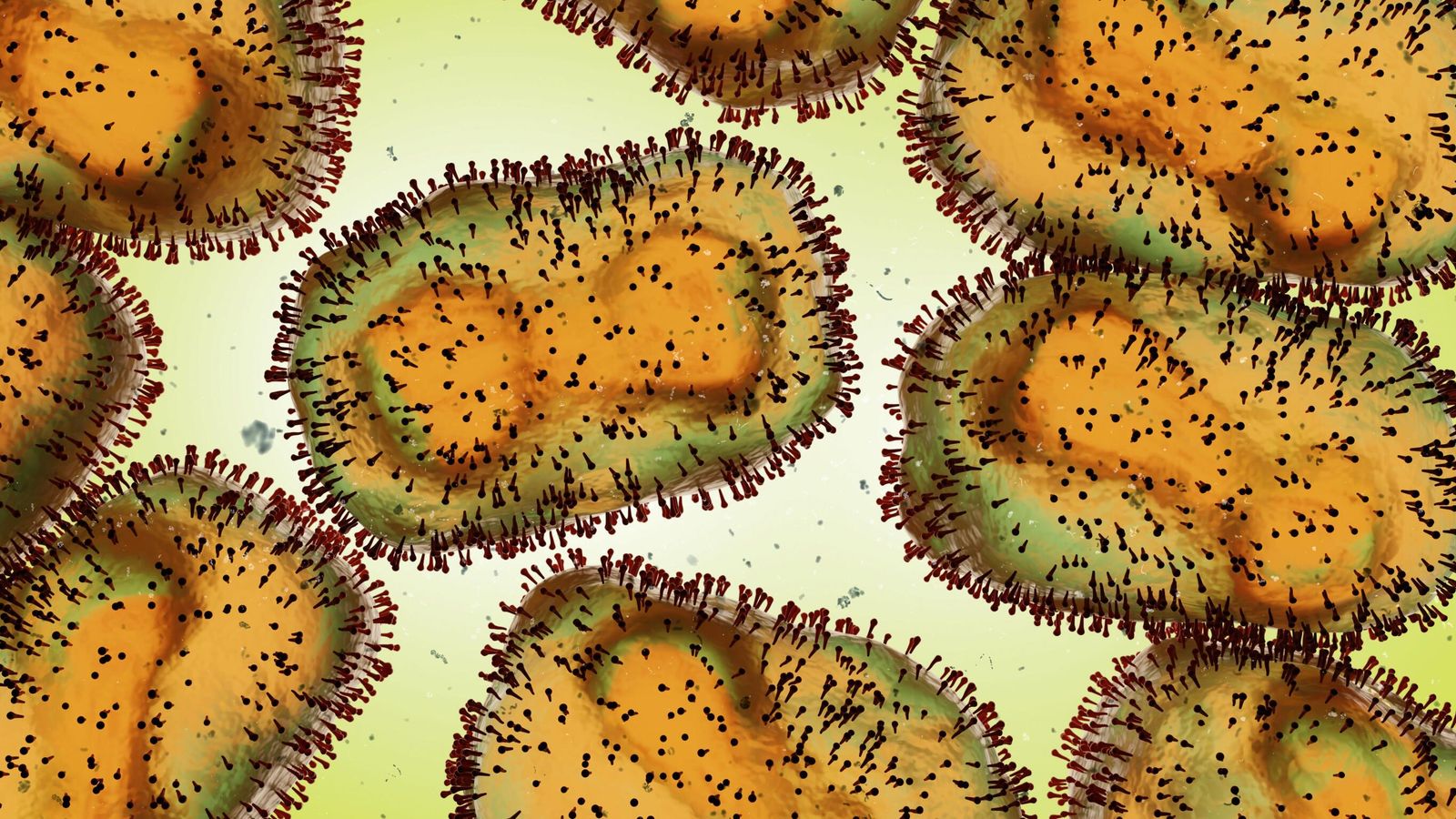Monkeypox has been rebranded ‘mpox’ by the World Health Organisation.
“Both names will be used simultaneously for one year while ‘monkeypox’ is phased out,” the global agency said.
Monkeypox symptoms vary but include rash, fever, chills, swollen lymph nodes, exhaustion and headache.
Single genital lesions and sores on the mouth or anus have also been identified as symptoms of the virus by an international collaboration of clinicians across 16 countries.
Some of the symptoms were so severe they required patients to be admitted to hospital.
In September, a second strain of monkeypox was detected in the UK after a person who had travelled to West Africa was diagnosed.
In October, leading infectious disease expert Professor Neil Ferguson said the UK looked to be winning the battle against the disease as case numbers were dropping – but he warned against complacency and highlighted the risk of a resurgence.
Monkeypox transmission occurs up to four days before symptoms appear, scientists find
UK launches new research hub to tackle monkeypox
Monkeypox: Leading sexual health charity says it can no longer support government’s ‘lacklustre’ communications strategy
There have been more than 80,000 cases worldwide, according to the US Centers for Disease Control and Prevention.
Last week data revealed a single dose of the monkeypox vaccine provides 78% of protection against the virus, according to the UK Health Security Agency (UKHSA).
The analysis reviewed data for the Bavarian Nordic vaccine in England between 4 July and 3 November.
The single shot was found to provide 78% protection 14 days after being vaccinated, while a second dose is expected to offer even greater and longer-lasting protection, the UKHSA added.
More than 55,000 doses of the vaccine have been delivered so far, the agency said.






